Niche Job Boards: Examples That Actually Work
Niche job boards are one of the most reliable ways to build a profitable, defensible job board business.
Instead of competing with large, generalist platforms, niche job boards focus on a specific audience, industry, role type, or hiring model. This focus makes them easier to market, easier to rank in search engines, and more valuable to employers who care about relevance over reach.
In this article, we’ll look at successful niche job boards — not as recommendations for job seekers, but as real-world examples of the top job boards that work. Each example highlights why the niche succeeds and what founders can learn when validating an idea, choosing a niche, and deciding how to monetize.
If you’re thinking about starting a job board, these examples act as proof of demand and inspiration for positioning.
Why Niche Job Boards Are So Effective for Founders
From a founder’s perspective, niche job boards tend to outperform general job boards for a few key reasons:
- Employers are more willing to pay for targeted audiences
- SEO is more achievable with clear topical focus
- Marketing is simpler when the audience is well-defined
- Smaller boards can still be profitable without massive traffic
The job boards below demonstrate these principles across different industries, job types, and monetization models.
- Skima AI: Specializes in AI and machine learning roles.
- Stack Overflow Jobs: Focuses on tech and software development jobs.
- Behance: Tailored for creative professionals like designers and photographers.
- AngelList Venture (Wellfound): Connects startups with talent.
- FlexJobs: Dedicated to remote, part-time, and flexible roles.
- Dice: Exclusively for IT and tech professionals.
- Dribbble: A hub for design professionals with portfolio showcases.
- DiversityJobs: Prioritizes connecting diverse candidates with employers.
- We Work Remotely: Focused on remote-only job listings.
- Hired: A reverse recruiting marketplace for tech and sales talent.
These platforms outperform general job boards by offering better matches, industry-specific features, and access to hidden opportunities. They also support diversity goals and provide tools to track hiring trends and salary benchmarks.
1. Skima AI — Artificial Intelligence & Machine Learning Roles
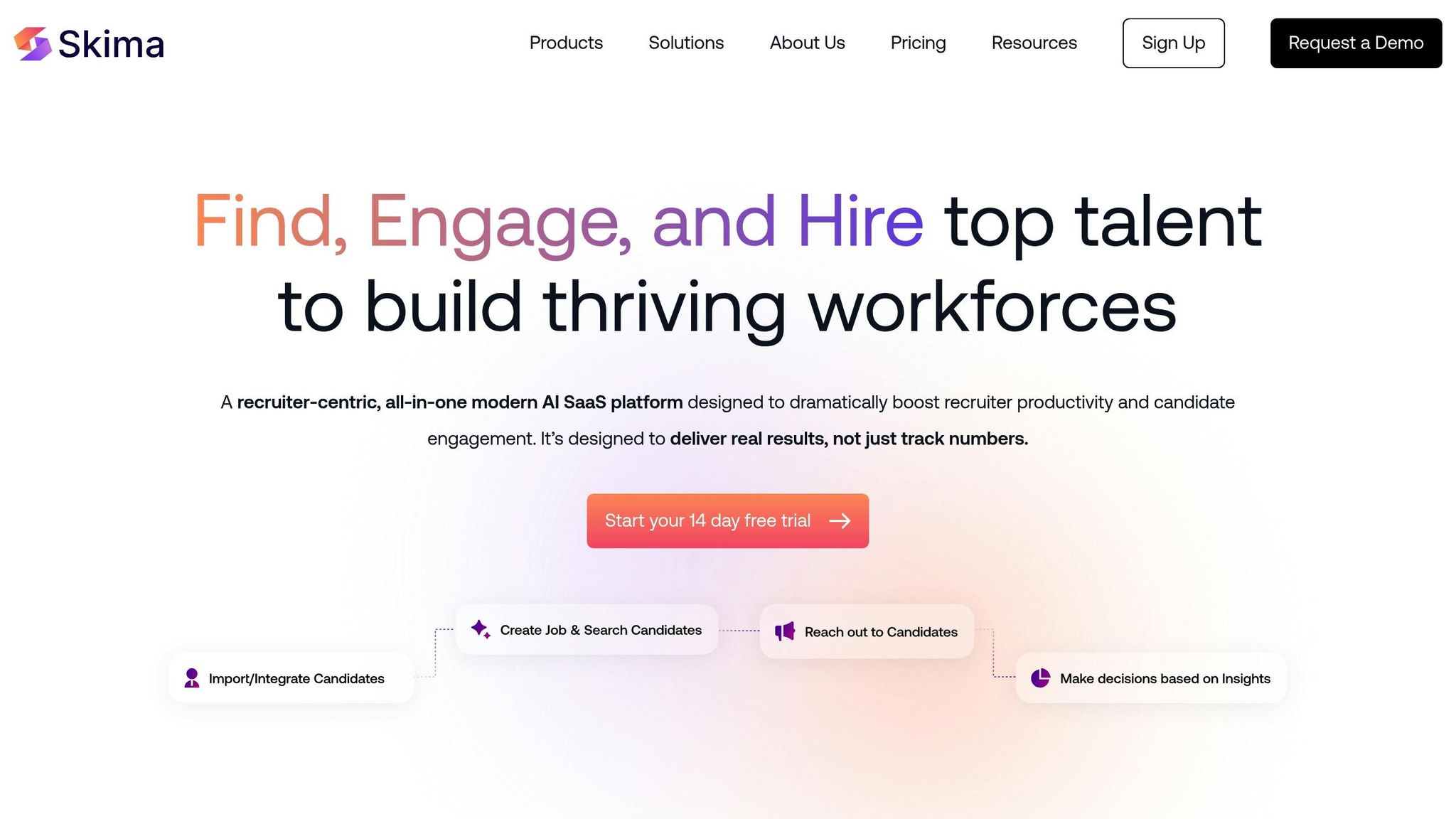
Focused on AI and Machine Learning Roles
A niche board focused on AI and machine learning positions, catering to a highly technical segment. In a competitive job market, Skima AI carves out its space by concentrating on roles in artificial intelligence and machine learning.
Why This Niche Works
- AI & ML are fast-growing skills with persistent hiring demand.
- Employers struggle to find relevant talent on large, general platforms.
Founder Lessons
- Platforms that cater to niche industries often simplify the hiring process by narrowing the pool to highly relevant candidates.
- Pick emerging skill clusters where demand outpaces supply — these make powerful niches.
- Even if a niche seems too specialized, high demand + low noise = better monetization potential.
How to Apply This
Validate demand with keyword research and employer outreach before building.
2. Stack Overflow Jobs — Software & Tech Talent
Focused on Tech Roles
A job board closely tied to the Stack Overflow community, focusing strictly on tech roles. Stack Overflow Jobs is all about technology and software development positions. From programming and engineering to IT roles, it caters to a highly focused audience.
Why This Niche Works
- Strong community trust and ownership of technical expertise.
- Deep integrations with developer profiles and reputation systems.
- What sets Stack Overflow Jobs apart is its skill-driven approach.
Founder Lessons
- Community ties build trust — boards connected to existing communities convert better.
- By focusing on a specialized audience, Stack Overflow Jobs cuts down irrelevant applications by up to threefold.
- Not all niches require fancy tech — simplicity plus trust wins.
How to Apply This
If you have or can build a community (forum, blog, Slack/Discord), consider launching job listings in parallel.
3. Behance — Creative & Design Professionals
Focused on Creative Professionals
A niche board for creatives, integrated into a portfolio-centric ecosystem (Adobe/Behance). Behance continues to dominate in 2025 as the go-to platform for creative professionals. It caters specifically to those in graphic design, UX/UI, illustration, and photography.
Why This Niche Works
- Candidates show work visually — a powerful credential.
- Employers can assess portfolios before even talking to candidates.
- Enables quick evaluation of candidates' creative skills and project quality through visually rich portfolios.
Founder Lessons
- Differentiated candidate presentation (portfolio, samples) increases conversion.
- Niche boards with rich profiles often attract higher-paid listings.
How to Apply This
Include portfolio uploads or curated showcases — this can be a differentiator for visual niches.
4. Wellfound (AngelList Talent) — Startup Roles
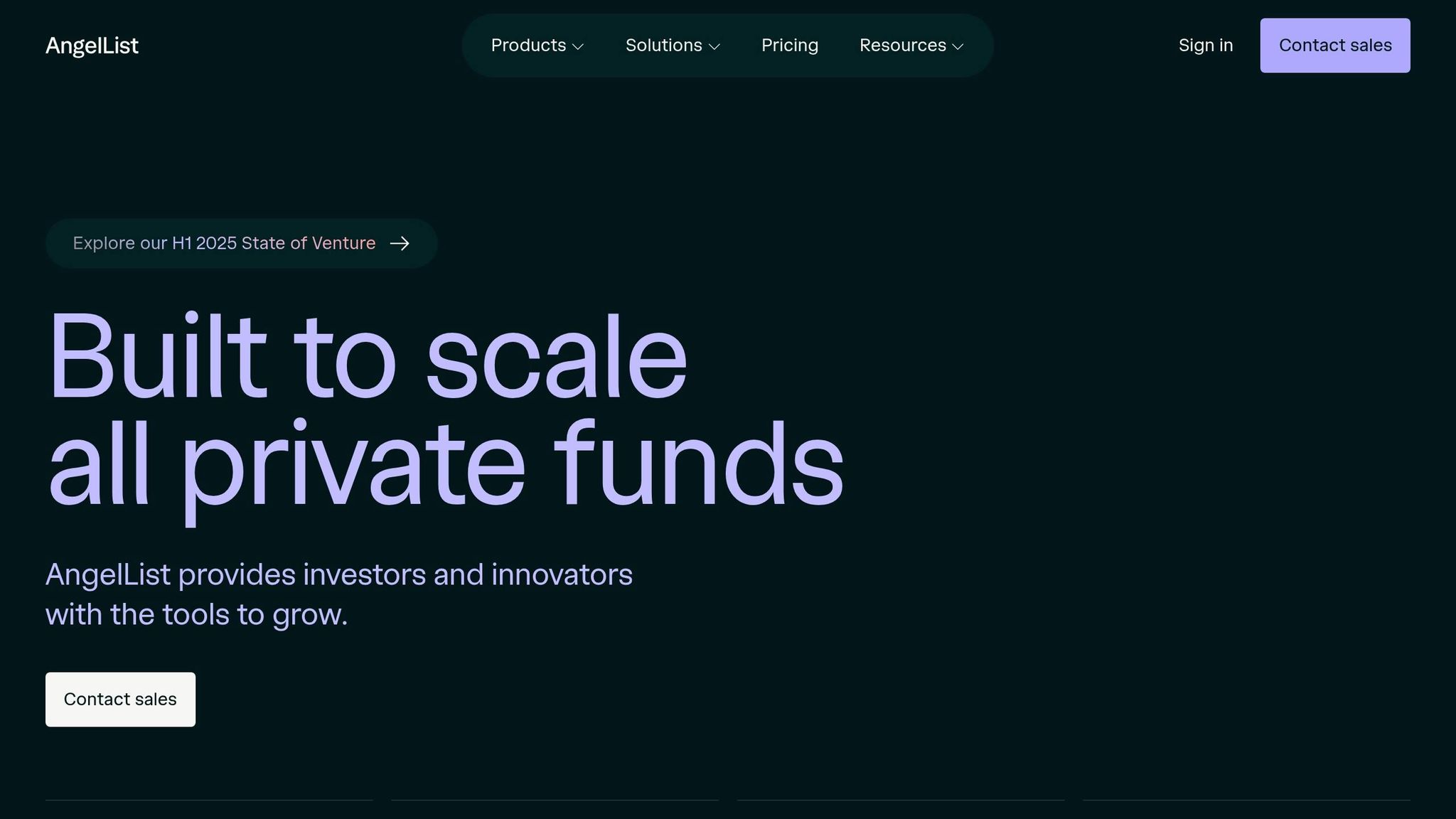
Focused on Startup Talent
A niche board for startup jobs, emphasizing transparency, equity and direct founder-to-talent connections. Wellfound, previously known as AngelList Venture, is all about connecting early-stage startups with individuals eager to work in the fast-paced, high-growth world of venture-backed companies. Its dedication to this niche creates a space where innovation, risk-taking, and growth are highly valued by both employers and job seekers.
Why This Niche Works
- Startups have unique hiring preferences and culture fits.
- Many candidates want startup-specific dynamics like equity.
- What sets Wellfound apart is its tailored approach to startup hiring.
Founder Lessons
- Niche by employer type, not just job function.
- Hiring preferences (e.g., startup culture) are valid niche lines.
How To Apply This
Give employers tools to showcase company culture and compensation structures.
5. FlexJobs — Flexible & Remote Work
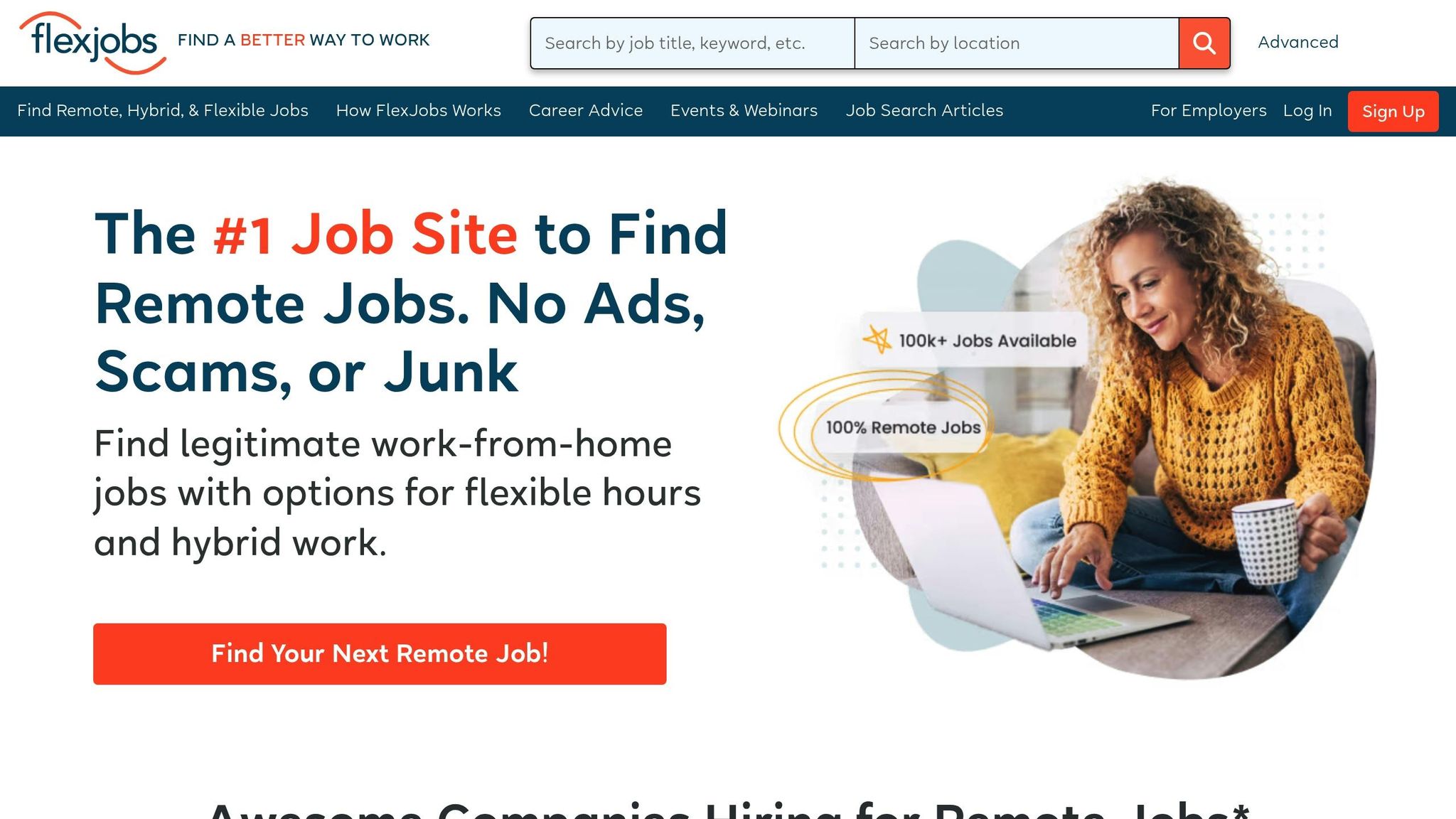
Focused on Flexible Work
A trusted platform for flexible, part-time, and remote positions across industries. FlexJobs is a go-to platform for those seeking remote, part-time, freelance, or otherwise flexible job opportunities. Unlike traditional job boards that mix various types of roles, FlexJobs zeroes in on positions that support work–life balance. It caters to industries like tech, education, healthcare, customer service, and creative fields. This specialized approach allows FlexJobs to provide tools designed specifically for hiring in these non-traditional work environments.
Why This Niche Works
- Remote work is not tied to one industry — it’s a work modality with mass demand.
- Employers pay a premium for pre-screened flexible candidates.
- One of FlexJobs’ standout features is its commitment to quality and security.
Founder Lessons
- Niches can be behavioral or preference-based (not only skills/roles).
- Strong screening/review process builds credibility.
- FlexJobs simplifies hiring by connecting employers with a pre-screened pool of candidates reducing the time spent sorting through irrelevant applications.
How to Apply This
Include verification or quality control steps that justify your pricing.
6. Dice — IT & Tech Specialists
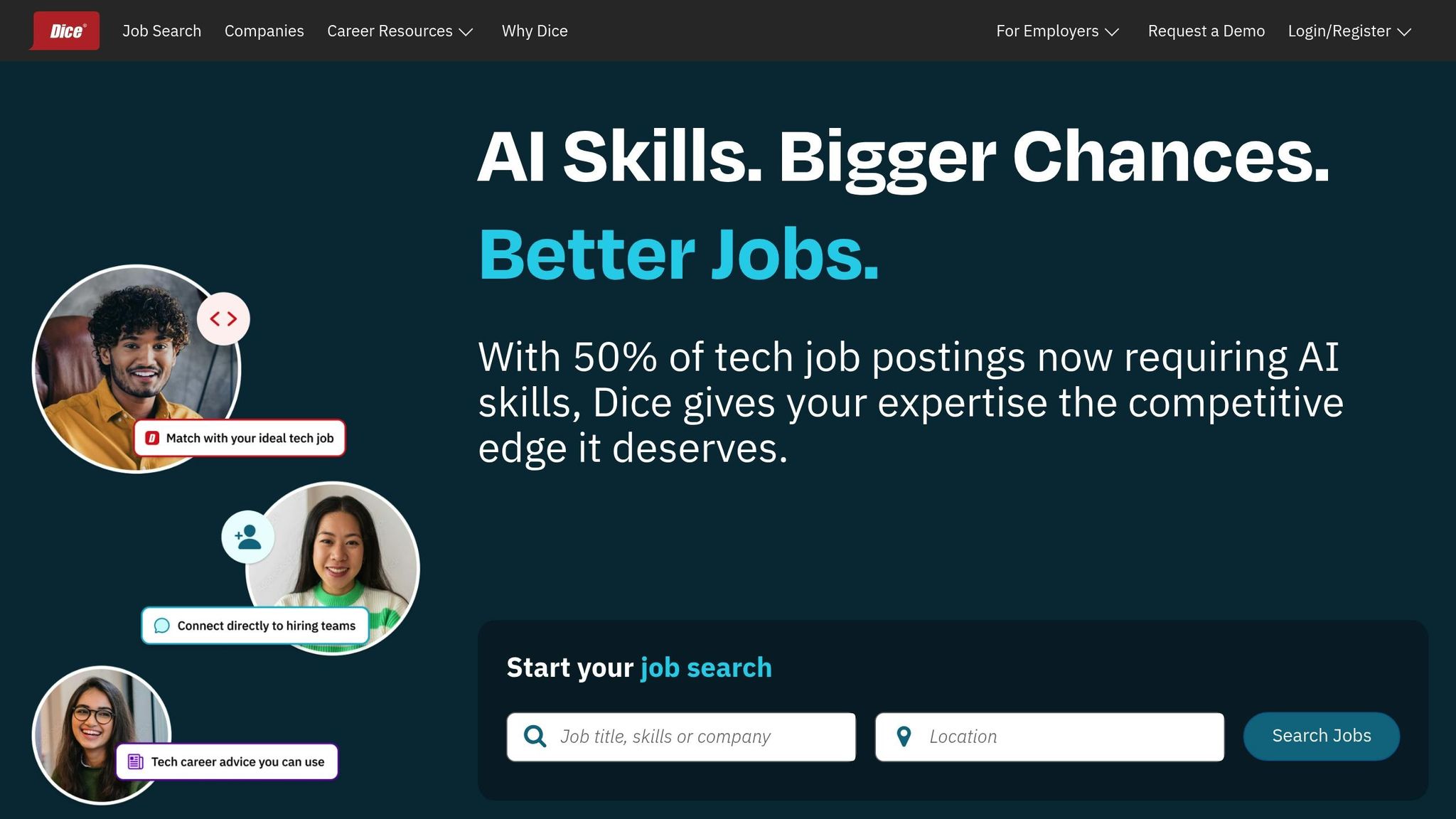
Niche Specialization
A long-standing tech-centric job board with advanced filtering and matching tools. Dice stands out by focusing solely on tech recruitment, catering exclusively to professionals in IT, software development, cybersecurity, data science, and engineering. Unlike general job boards that cover multiple industries, Dice is a dedicated hub where tech talent and employers connect. This laser-focused approach ensures that job listings are highly relevant, saving time for both candidates and recruiters. From software engineers and data scientists to cybersecurity experts and DevOps engineers, Dice covers a wide range of tech roles.
Why This Niche Works
- Tech hiring remains continuous and lucrative.
- Employers pay for precision: specific skills, certifications, languages, etc.
- Dice provides a robust set of tools tailored for tech hiring.
- Its tech-specific resume database and AI-powered job matching system are designed to identify candidates based on technical skills and certifications.
Founder Lessons
- For deep skill niches (like cybersecurity), advanced filters = higher employer value.
- Offering data insights (trends, benchmarks) increases stickiness.
- By focusing exclusively on the tech sector, Dice simplifies the recruitment process significantly.
- Its advanced filtering and AI-driven tools help recruiters find qualified candidates faster, saving time but also improving the quality of hires, allowing employers to focus on connecting with top-tier talent.
How to Apply This
Invest in smart search and filtering that aligns with your niche’s language and skills.
7. Dribbble — Design + Portfolio Integration
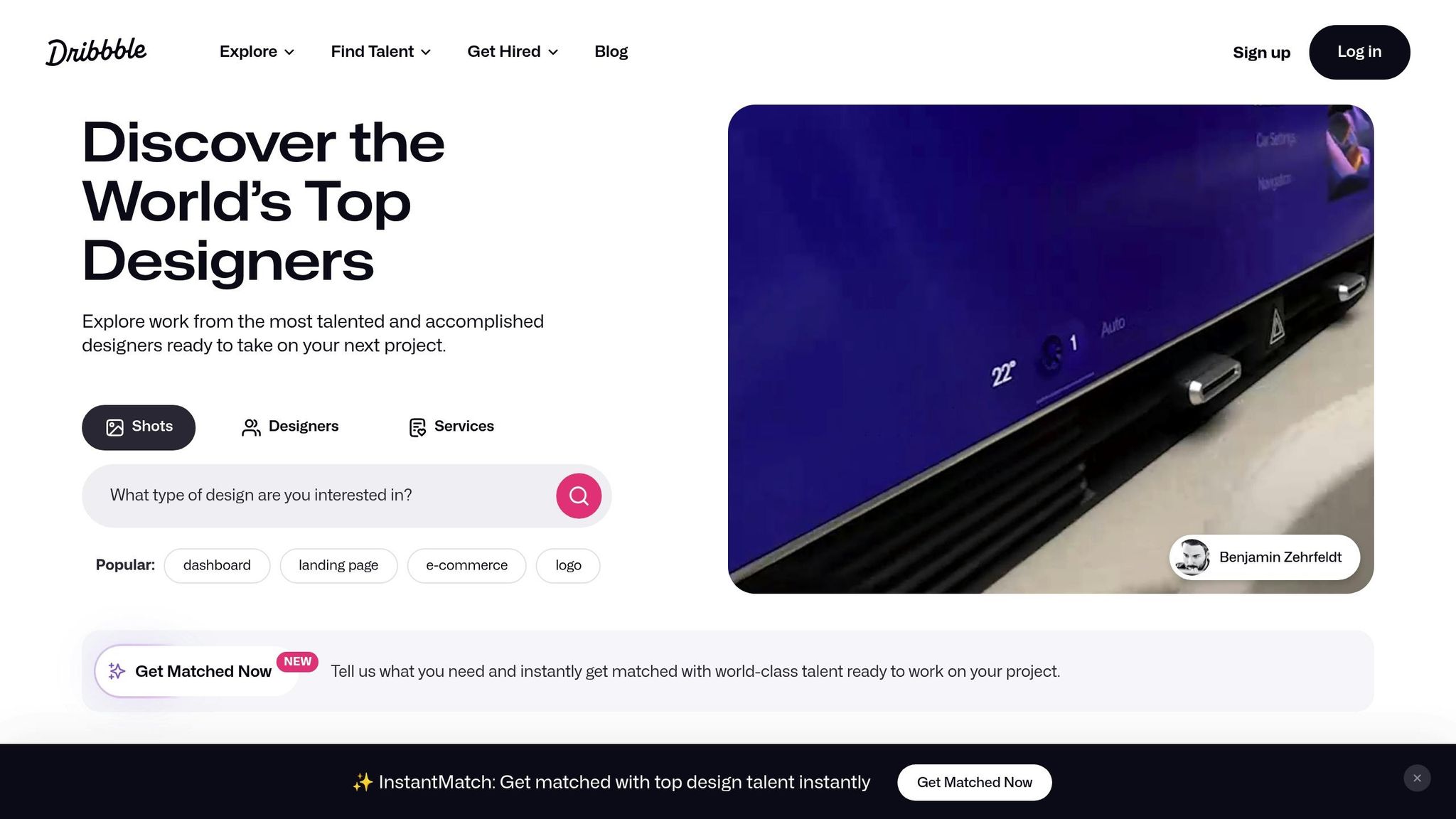
Niche Specialization
A hybrid job board + portfolio platform for design professionals. Dribbble stands out as a dedicated platform for creative professionals, combining a visual portfolio showcase with a specialized job board. It brings together graphic designers, UX/UI experts, product designers, illustrators, and motion designers, creating a focused community of design talent.
Why This Niche Works
- Combines powerful visuals with opportunity discovery.
- Employers can see work before they engage.
- Dribbble’s strength lies in its design-centric tools.
- Employers can review candidates’ visual portfolios directly on the platform, offering an immediate sense of their skills.
Founder Lessons
- A visual showcase isn’t just for creatives — it can work in any niche with portfolio needs.
- High-touch candidate presentation justifies premium pricing models.
- Dribbble simplifies the hiring process for design-focused roles by offering instant access to candidates' work samples.
How To Apply This
Consider project galleries, case studies, or micro portfolios depending on niche.
sbb-itb-316a34c
8. DiversityJobs — Inclusive Hiring Focus
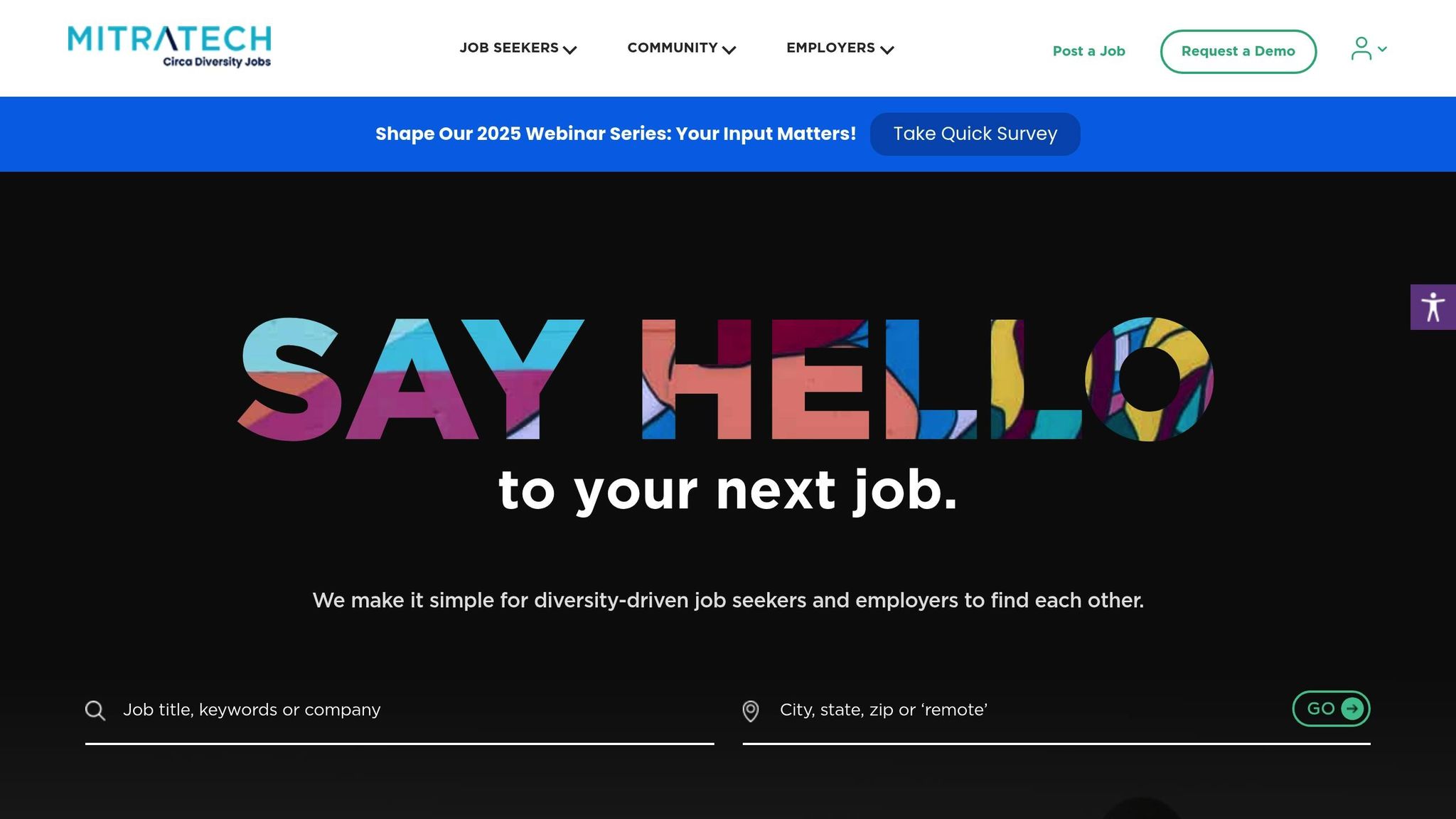
Focused on Inclusive Hiring
A niche board prioritizing connections between underrepresented talent and employers. DiversityJobs is dedicated to bridging the gap between employers and candidates from underrepresented groups, including people of color, women, veterans, individuals with disabilities, and LGBTQ+ professionals. The platform prioritizes diversity, equity, and inclusion (DEI), catering to job seekers who value workplaces that embrace inclusivity and employers striving to build diverse teams across industries and career stages.
Why This Niche Works
- DEI is now a corporate priority with budget behind it.
- Employers specifically seeking diverse talent are willing to pay for focused access.
- This platform stands out with its targeted job postings, designed to connect employers with diverse talent pools.
Founder Lessons
- Mission-driven niches attract both employers and engaged users.
- If you can add community resources + editorial, value increases.
- DiversityJobs helps employers streamline hiring by delivering three times more relevant applications and increasing the number of diverse applicants by 40%.
How To Apply This
Build partnerships with professional networks and communities that support your mission.
9. We Work Remotely — Remote-Only Jobs
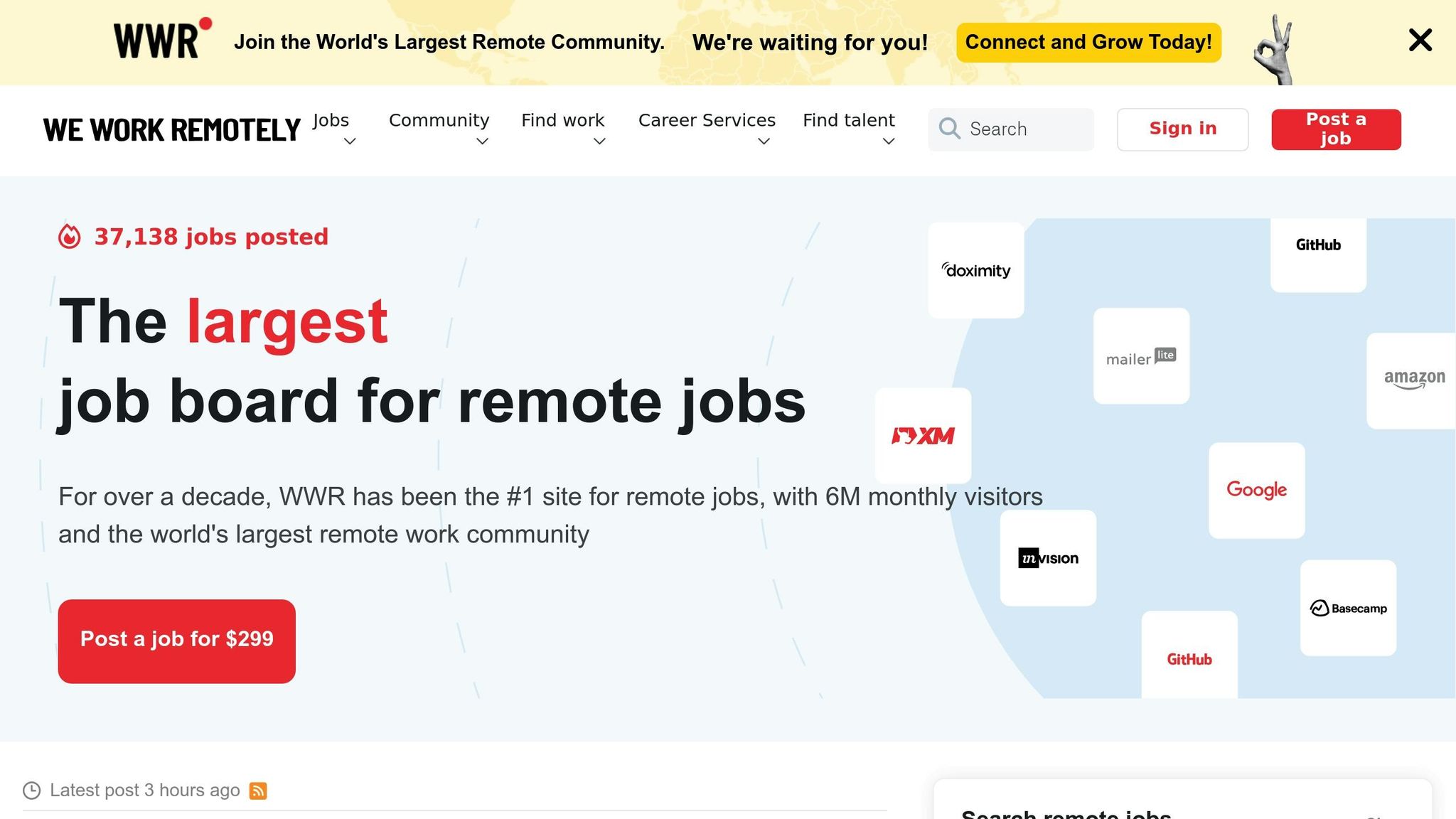
Focused on Remote Opportunities
A dedicated remote job board with a strong reputation and community. We Work Remotely is dedicated exclusively to remote job opportunities, setting it apart from platforms that mix in-person and remote roles. This sharp focus attracts companies building distributed teams and professionals seeking flexible, location-independent careers. It's become a key resource for digital nomads and remote workers, creating a strong community centered around the remote work lifestyle.
Why This Niche Works
- Removes noise from mixed boards — remote jobs only.
- Helps employers find remote-ready talent quickly.
- The platform offers a curated selection of remote-only job listings, paired with advanced filtering options and employer branding tools.
Founder Lessons
- Focus doesn’t have to be narrow — clear, coherent positioning is what matters.
- Remote work continues to grow; boards that own this angle stand out.
- We Work Remotely focuses on connecting employers with remote-ready candidates, which cuts down the time spent on hiring and improves the quality of applicants.
How To Apply This
Curate remote jobs and build content around remote work best practices to drive SEO.
10. Hired — Reverse Recruiting for Tech & Sales

Focused on Tech and Sales Talent
A marketplace where companies reach out to pre-screened candidates directly. Hired operates as a reverse recruiting marketplace tailored for tech and sales professionals. Instead of candidates applying for jobs, companies reach out directly to pre-screened individuals for roles like software engineers, data scientists, product managers, designers, and sales experts.
Why This Niche Works
- Saves employers time and improves match quality.
- Reverse recruiting flips the standard model and can command premium pricing.
- One of Hired's standout features is its commitment to salary transparency requiring employers to include compensations details upfront.
Founder Lessons
- Consider alternative marketplace models — not all job boards must be linear listings.
- Pre-screening and match tools boost employer ROI.
- Hired’s reverse recruiting model significantly reduces the time it takes to fill a position, generating up to three times more relevant applications compared to general job boards.
How To Apply This
Even simple matching tools (skills tags, AI suggestions, recruiter outreach features) lift value.
14 Hidden Job Boards With WAY Less Competition Than Indeed
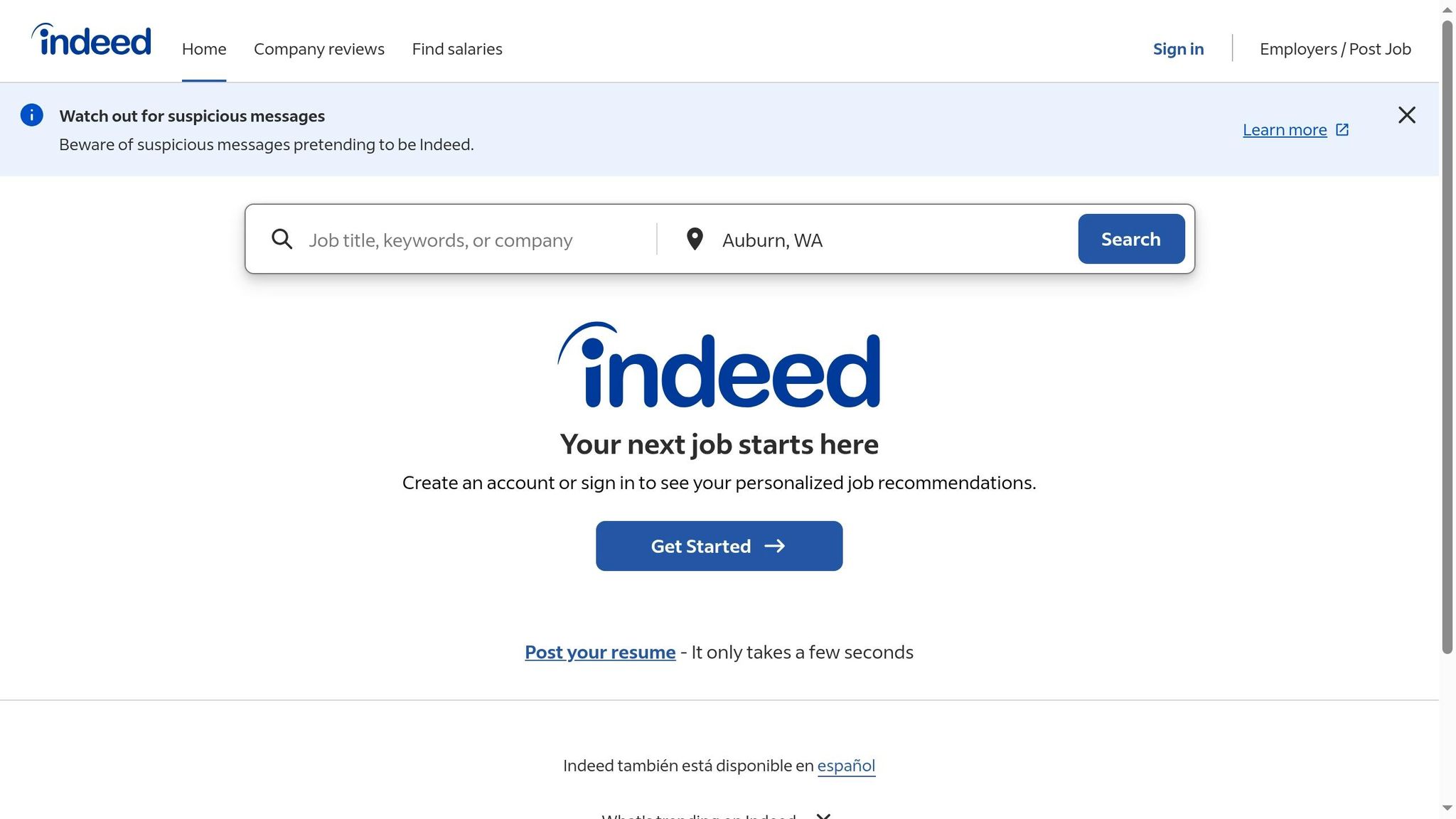
Common Patterns in These Successful Boards
Across all ten examples, successful niche job boards give founders:
- Clear audience definition
- Higher employer willingness to pay
- SEO friendly page structures
- Features tailored to the niche’s language or workflow
- Community or trust-based signals
These traits make them easier to market, easier to monetise, and more defensible over time.
Conclusion
The job boards featured in this article may serve different industries, roles, and hiring models, but they all prove the same core point:
Niche job boards win by focus, not scale.
Each successful example shows that you don’t need millions of listings or users to build a valuable job board business. What matters is:
- A clearly defined audience
- A real hiring problem being solved
- Employers who value relevance over volume
- A business model aligned with that niche
For founders, these examples provide more than inspiration — they provide validation. If employers are already paying to hire within a specific niche, there’s a strong chance a well-positioned, well-executed job board can compete by offering a better experience, clearer positioning, or deeper specialization.
The key takeaway is simple:
Choose a niche with demand, commit to it, and build for that audience deliberately.
With modern job board software, it’s easier than ever to test an idea, launch quickly, and iterate based on real market feedback. The most successful niche job boards didn’t start by trying to serve everyone — they started by serving the right people exceptionally well.
If you’re considering starting your own job board, use these examples as a blueprint, not a benchmark — and focus on building something narrowly useful, defensible, and sustainable.
FAQs
What makes niche job boards more effective than general job platforms for employers and job seekers?
Niche job boards carve out a space by zeroing in on specific industries, professions, or interests, offering tailored advantages for both employers and job seekers.
For employers, these platforms deliver a focused pool of candidates, making it easier to connect with individuals who have the right skills and qualifications. This targeted approach streamlines the hiring process and cuts down on time spent sifting through unrelated applications.
For job seekers, niche boards take the guesswork out of the job hunt by presenting opportunities that match their expertise and passions. This not only saves time but also boosts the likelihood of landing a role that’s a perfect match in an often crowded job market.
How do niche job boards promote diversity and inclusion in hiring?
Niche job boards zero in on specific industries or communities, offering opportunities that are carefully tailored to meet unique needs. Some of these platforms focus on underrepresented groups, creating a bridge for job seekers from diverse backgrounds to connect with employers who genuinely prioritize inclusivity.
For companies, these boards are a way to tap into a broader range of talent while showcasing their dedication to equitable hiring. By addressing distinct challenges and needs, niche job boards play an important part in encouraging fair hiring practices and fostering workplace diversity.
What unique features do niche job boards like Stack Overflow Jobs and Behance offer to improve hiring?
Niche job boards like Stack Overflow Jobs and Behance are designed with specific industries in mind, offering features that make hiring more precise and streamlined. Take Stack Overflow Jobs, for instance - it’s tailored for tech professionals, providing tools that emphasize programming skills and help connect candidates with roles requiring particular technical expertise. On the other hand, Behance caters to creative professionals, allowing users to display their portfolios directly on the platform. This visual showcase lets employers assess a candidate's work upfront before reaching out.
What sets these platforms apart is their focus on industry-specific needs. By narrowing their scope, they create a more targeted and efficient experience for both employers and job seekers. This often results in quicker hiring and stronger candidate matches compared to broader, general job boards.
